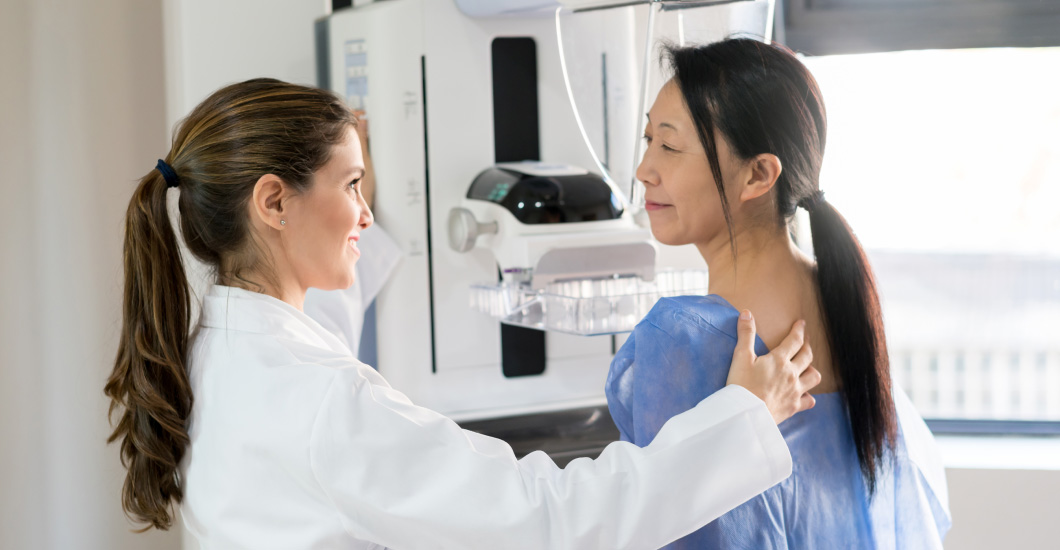Cancer screenings: What you need to know
Doctor's advice, Older Adults /

Am I at risk of cancer?
Nearly all of our body cells can develop cancers, some of the most complex and catastrophic conditions we can face as human beings as they compromise every aspect of our lives.
Even with the current technological advances, it is impossible to detect all types of cancers. However, scientists and doctors have developed methods to detect the most common cancer types when they are just starting to appear and, while some people are at higher risk of developing cancer, everyone is recommended to get screened periodically.
What are Cancer Screening tests?
In summary, a screening is the use of medical tests to find a disease in asymptomatic people. Cancer screenings are aimed to early detect cancers before they are established.
Cancer screening tests are simple and cheap, yet they are very accurate to detect if there are abnormal cells in your body. We should all submit ourselves to regular screenings according to what doctors recommend.
Screenings are generally easy to perform and not invasive, and you can get your screening results in a matter of days!
But which screening tests do I need?
It depends on individual traits like age, sex, and sometimes even where you live. For example, some tests need to be performed in selected populations, and this is based on studies that show which diseases are most likely to appear in specific groups of people.
Some cancers are more common and can be more easily detected than others. When doctors realized this, they started working on easy ways to detect them. They also studied risk factors for developing (and dying) of each type of cancer.
Although cancers do not discriminate by age, people around the age of 40 and 50 are more likely to develop it than younger or older people. In consequence, most screening tests are aimed at people aged 40 to 65 years.
We will mention the most important cancer screenings and who need those based on age and sex. All of our recommendations at Sanitas are in line with the American Cancer Society.
Screening for women
If you are a woman, you need to remember two basic tests: breast cancer screening tests and cervical cancer screening tests.
Breast cancer is screened with a specific exam called mammogram. It is a radiographic image of your breasts that detects abnormal cell accumulations. Other tests such as ultrasonography, magnetic resonance imaging (MRI), or computed tomography (CT) images are not as useful as mammograms for detecting cancer. They can show abnormal results that are not cancer, are more expensive, and results take more time to be ready.
Cervical cancer is screened with the PAP smear test. It is a direct evaluation of the appearance of cervical cells, and is obtained with a brush. Although it can be a little uncomfortable, the PAP smear is the best and easiest way to detect abnormalities.
Cervical cancers are directly related to the infection by certain types of human papillomavirus (HPV), which is a sexually transmitted infection (STI). Therefore, PAP tests are usually performed along with a specific test that looks for those HPV types. Your doctor will tell you whether or not you require an HPV test based on your age.
Screening for men
In men, the most common cancers are prostate and testicular cancer. Although they are frequent, studies have shown that they are not as lethal as other cancers, and are somewhat easy to eradicate.
Testicular cancer is more commonly found in younger ages, between 20 and 34 years of age. Although there is no standard test to screen for it, there is still a way to detect abnormalities. The American Cancer Society recommends men to perform a testicular self-exam regularly. If you feel something strange, the best thing to do is to visit your primary care doctor who will determine if you require another exam.
Prostate cancer usually affects men older than 40, with an average age of presentation around 60 years. Currently, there is no clear evidence that screening for prostate cancer is safe enough to be recommended to every man. If you are concerned about prostate cancer, you should schedule an appointment with your doctor.
There are two screening methods to detect prostate cancer. The digital rectal exam is performed by a primary care doctor. It is a physical palpation of the prostate to detect calcifications or hardening.
The other one, the prostate-specific antigen (PSA) test, is a blood test that measures a substance made by the prostate; however, results can be affected by many factors such as riding a bicycle or having sex. This is why it is better to visit your doctor and discuss your concerns.
Screening for both men and women
Some cancers are common between both males and females. This is why the American Cancer Society, along with the United States Preventive Services Task Force (USPSTF) have provided their recommendations based only on age. We will mention the most important ones to keep in mind.
Lung cancer is mainly due to an exposure to harmful substances. The most important toxic we expose ourselves to is tobacco smoke. Smoking poses several risks to your health.
Studies have shown that smoking increases the risk of developing other diseases, including tongue, mouth, and even bladder cancer. But the most common one, aside from increasing your risk of suffering from heart and pulmonary diseases, is the risk of lung cancer.
According to the USPSTF, healthy people between 50 and 80 years of age who smoke or have quit in the past 15 years, and who have at least a 20 pack-year smoking history (calculated by multiplying the number of packs of cigarettes the person smokes per day by the number of years they have smoked) should be screened for lung cancer with a low-dose computed tomography (LDCT) scan. Feel free to ask your doctor whether or not you need to be screened for lung cancer.
Colorectal cancer is one of the leading causes of death globally. Although screening practices diminished its appearance, it is still very important to identify it before it causes a severe disease. In this type of cancer, family history plays a key role. If you have a first-degree relative (like your mother, father or son) who had colorectal cancer, your risk of developing it will be higher.
Screening recommendations from the USPSTF include all people who are at a standard risk of colorectal cancer starting at age 45. There are several options to perform this screening, but the following three are the main ones. Your doctor will help you choose the best one for you.
Fecal tests are fast and reliable to screen for colorectal cancer. You can choose from a fecal occult blood test (FOBT) which is valid for a year, or a more specialized fecal immunochemical test (like the Cologuard®) that can be valid for 3 years. However, you should know that the most reliable exam to screen for colon cancer is the colonoscopy. Although it can be a little uncomfortable, it is safe and it lasts for up to 10 years.
Skin cancer is also a very common cancer. There are mainly three skin cancer types: the basal cell cancer, the squamous cell cancer, and the melanoma. Although each one has different risks and presentations, they all share the sun exposure as one of the main risk factors.
There is currently no test developed for skin cancer screenings. If you are concerned about your skin, you should visit your primary health care provider and solve your doubts. All primary care providers are trained in preventive health and early detection of the most common conditions, so you don't need to see a dermatologist to be counseled or screened for skin cancers.
This is a lot of information! What should I do?
Prevention is first. Regardless of your gender, you need to check your skin, avoid excessive sun exposure, keep a healthy diet, exercise and avoid smoking. You should also get screened for colon cancer starting at 45 years and if you smoke, you should also check if you apply for lung cancer screening.
Aside from self-examination, you should visit your primary care doctor regularly. It is important to detect cancers early, so that doctors can treat them easily. Keep in mind that women need to screen regularly for breast and cervical cancer, while men need to perform a periodical testicular self-examination, especially before the age of 50.
In Sanitas you can find a doctor that will evaluate your individual needs and indicate which screenings for cancer and other diseases you need. Our team of experts will explain everything you need to know before considering a screening test. Enroll now in Sanitas and book an appointment, or schedule a chat session with one of our health professionals. In Sanitas, we care about you!


